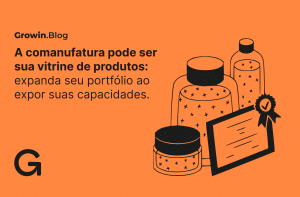Do you often concern about the packaging solutions we find at the market? Is the amount of plastic we see really necessary to make sure the content is secure and ready to consume? How to make the best choices when making a product sustainable?
Consumers can agree to disagree in many topics but sustainability has become a hot one when we think about the high numbers of waste production and in that, CPG industry has a strong part to play.
A contract packing is a good solution to meet not only the sustainability issues but to find a balance between ethics and price.
Take Nestlé, for example. In 2022, they set out to make 100% of their packaging recyclable or reusable by 2025 — a goal that would be impossible to achieve without the full cooperation of their contract packers. By partnering with their contract packers to introduce innovative, plant-based materials and optimize packaging designs, Nestlé managed to cut its total packaging usage by 10% in just one year. The key takeaway? Contract packing isn’t just part of the supply chain — it’s at the forefront of driving sustainability.
The role of contract packaging in sustainable supply chain
Contract packing, also known as co-packing, refers to a third-party company responsible for assembling, packaging and preparing goods for retail. For a very long time, this process often prioritized cost-efficiency and speed over sustainability, creating big challenges unaddressed such as non-recyclable plastics, excessive use of energy and waste in packaging lines.
Sustainable packaging solutions are trending now, as discussions towards the future of humanity, the global warming and its effects, makes us think about our choices and how they influence in our lives.
Consumers are willing to pay premiums for sustainable products, particularly those that are locally sourced and produced. Globally, 35% of consumers are willing to pay over 10% more for locally sourced sustainable foods. In Canada, over 70% of consumers would pay above-average prices for locally produced or sourced goods.
Co-packers now find themselves at the spot of a transformation, with an opportunity to not only enhance their eco-friendly practices but also to offer greater value to their clients by helping them meet their environmental commitments.
Adopt contract packaging to drive sustainability
Co-packers bring expertise, flexibility, and scale, allowing brands to accelerate their eco-friendly initiatives without significant in-house investment. Here are key strategies that brands can adopt by collaborating with co-packers to drive sustainability in their supply chains:
1. Eco-design changes
One of the most impactful steps brands can take is switching to sustainable materials such as biodegradable plastics, recycled paper, or plant-based packaging alternatives, in which co-packers with expertise in eco-design can be essential partners. These materials reduce the dependency on virgin plastics, minimizing both the environmental footprint and the carbon emissions associated with raw material extraction.
Eco-design focuses on creating packaging that uses fewer raw materials, generates less waste, and prioritizes recyclability or reusability, reducing carbon footprint. For instance, a co-packer might suggest reducing the thickness of packaging films or using mono-materials that are easier to recycle, helping brands meet stringent sustainability targets.
Co-packers can also offer insights into modular packaging systems that minimize material use while enhancing logistics efficiency, further reducing the brand’s overall environmental footprint.
2. Optimizing the package
Large brands can significantly reduce their reliance on virgin materials by partnering with co-packers who specialize in renewable and recycled materials. This can include everything from post-consumer recycled (PCR) plastics to bio-based materials made from renewable resources such as corn starch or sugarcane. By outsourcing packaging to companies that have already invested in these sustainable alternatives, brands can quickly scale up eco-friendly solutions.
For instance, a co-packer can help a brand transition from traditional plastic to biodegradable or compostable packaging that aligns with both regulatory requirements and consumer demand for more sustainable products. This strategy not only helps reduce the environmental impact but also enhances brand perception by meeting evolving sustainability expectations.
3. Circular economy practices
A growing number of CPG brands are adopting circular economy principles, focusing on keeping materials in use for as long as possible. Co-packers play a key role in scaling these efforts by providing returnable, refillable, and reusable packaging systems. Brands can partner with co-packers to launch closed-loop packaging initiatives, where packaging can be returned, cleaned, and refilled, eliminating waste from the supply chain.
For example, working with a co-packer that facilitates reusable packaging programs—like Loop, which partners with major brands such as PepsiCo and Unilever—can help brands establish a more sustainable packaging lifecycle. These partnerships allow brands to move away from single-use packaging while also enhancing customer loyalty through sustainable offerings.
4. Technologies for packaging
If you’re looking to enhance sustainability without compromising efficiency, you can find co-packers that offer smart packaging technologies. These technologies help reduce waste and improve supply chain transparency, while also supporting environmental goals. For instance, QR codes or RFID chips embedded in packaging can help track product lifecycles, recycling rates, or even consumer engagement, providing data that can be leveraged to refine sustainability strategies.
5. Certifications and compliance
An important part of sustainability is to be in alignment to certifications, regulations and to be transparent about your supply chain choices. Co-packers that hold sustainability certifications such as ISO 14001 (environmental management) or Forest Stewardship Council (FSC) certification for paper products can provide immediate alignment with a brand’s corporate sustainability values. These certifications not only guarantee that the packaging process adheres to environmental standards but also help brands credibly communicate their sustainability efforts to consumers and stakeholders.
How GrowinCo. supports sustainability in contract packaging
At GrowinCo., we understand the growing need for sustainable practices in contract packing and manufacturing. In our platform, you can always find the best match partner for your product development, aligning the project needs to sustainability, in one place.
Whether it’s developing eco-friendly packaging for new products, sourcing sustainable materials, or optimizing production lines for lower environmental impact, our expertise in innovation and supply chain efficiency helps companies meet their sustainability goals without compromising on quality or cost-effectiveness.
Partnering with GrowinCo means creating products that are not only good for your bottom line but also better for the planet. Ready to take the next step in building a greener, more efficient supply chain? Let’s talk about how GrowinCo. can help you bring sustainable products to life.




